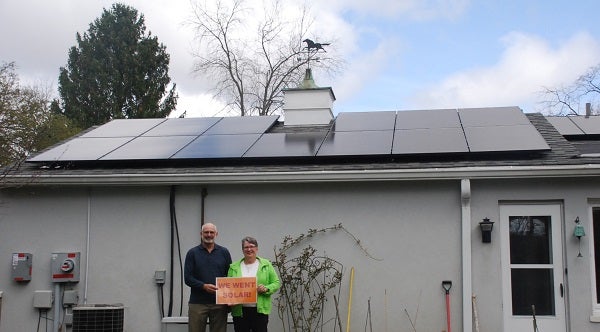Getting a head start on solar panel recycling

Solar energy’s environmental benefits are a reason many homeowners choose to go solar. This makes it all the more important that the solar industry develop solutions to the challenge of what to do with solar panels once they have reached the end of their life cycle. While this conversation has begun, there does not yet exist a comprehensive plan for properly disposing and reusing solar panels in the United States.
A solar panel contains many recyclable elements. These include its metal framing, glass sheets, wires, and plexiglass. Even a panel’s silicon cells can be melted down and re-used. A report from the International Renewable Energy Agency (IRENA) found that the value of recoverable materials could be nearly half a billion dollars. The biggest challenge is that each of these components must be recycled in unique ways.
Three years ago, the Solar Energy Industries Association (SEIA), a trade organization representing the solar industry, created the National PV Recycling Program to address this issue before it became a problem.
“We wanted to be proactive,” said Evelyn Butler, SEIA’s Senior Director, Codes and Standards. “By developing the infrastructure to manage the recycling of our products now versus years down the road, we can ensure that there’s a sustainable, cost-effective network in place to responsibly manage PV waste and end-of-life disposal of PV panels.”
The American solar panel industry lags a bit behind its European counterparts in dealing with the issue. As noted in the IRENA report, the European Union has a specific plan for solar waste management. In the U.S., solar waste management is lumped in with general waste management laws and regulations.
SEIA encourages innovation in the solar waste area by sending used panels to the small number of organizations today that can optimally process PV modules for recycling. An interesting aspect of the program is that SEIA members themselves engage directly in the continuous improvement of the process cycle. “Our members have visited many recycling facilities to evaluate the logistics and can offer general insights in how to best organize and protect the product prior to processing,” Butler said.
Solar manufacturers typically offer a warranty of about 25 years. Most solar installed in the United States has been installed within the last 10 years. This gives solar supporters and the industry time to address the issue before the first wave of solar panels come off line.
“Our goal with this program is to make the entire solar industry landfill-free,” Butler said.
